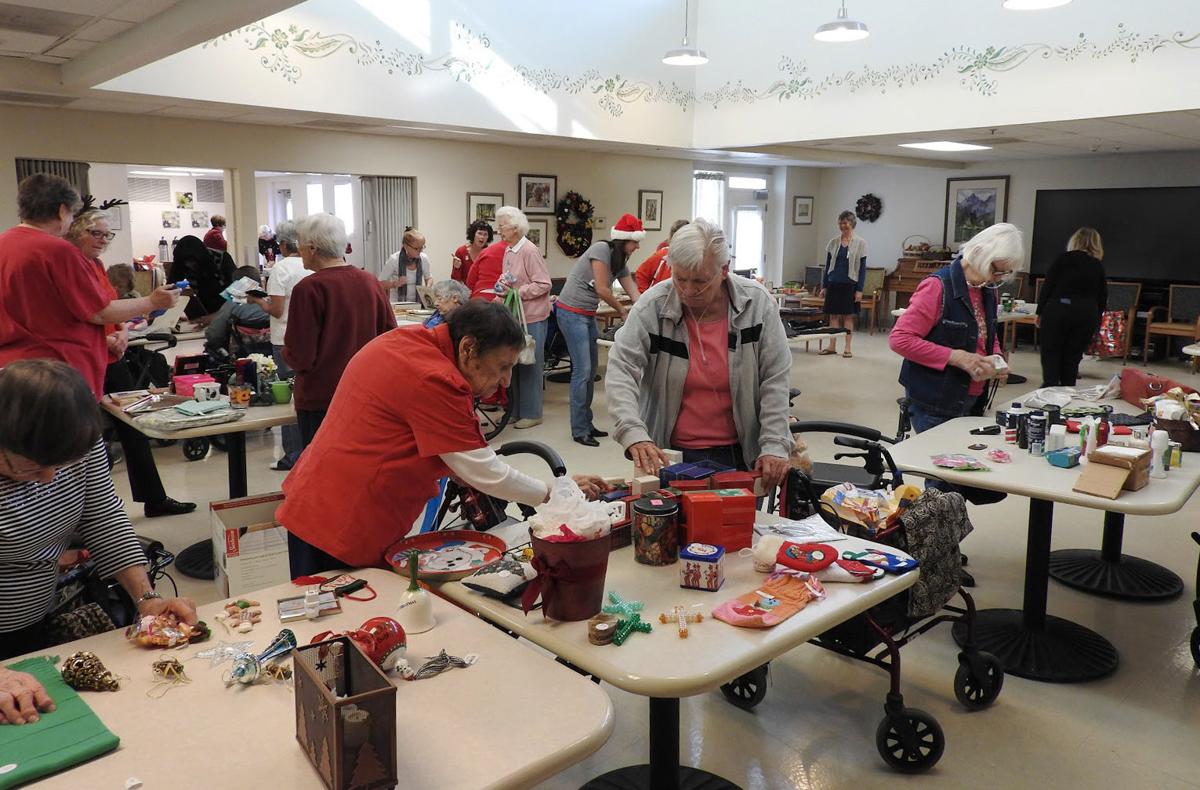The halls are decked, the stockings are hung, and if you are lucky, the presents are wrapped.
But itвҖҷs still not too late to bring holiday cheer to local seniors in need, and itвҖҷs as simple as donating a can of food, a blanket, hygiene items, bed or bath linens or just making a cash contribution.
вҖңSome of the groups who have helped us in the past were unable to do so this year, so we are concerned because we wonвҖҷt have some of the individualized gifts that residents rely on each year to help them maintain their independence at Miracle Square,вҖқ said Tom Cowdry, executive director of Miracle Square.
A local nonprofit that houses the economically disadvantaged elderly and adults with disabilities, Miracle Square provides private apartments with kitchenettes, a recreation room, a library and computer room, laundry facilities, a food pantry to supplement monthly food budgets, transportation and other services designed to allow residents to remain self-reliant.
People are also reading…
Established in 1982, the organization accommodates 25 clients in facilities at 2601 N. Oracle Road. It also assists clients who live nearby with outreach services. No medical services are provided, but residents are monitored with daily visitation, and each apartment is equipped with an alarm to notify the staff in case of an emergency. An on-site advocate helps residents access and coordinate social services. The majority of residents pay on a sliding fee scale.
вҖңAll of our residents live on very modest incomes,вҖқ said Cowdry.
Cowdry emphasized that although residents are economically challenged and live with chronic health conditions, disabilities and/or advanced age, they all share a determination to remain independent.
вҖңThe beautiful thing about Miracle Square is all the services we provide вҖ” daily welfare checks, transportation, the food pantry, security and advocacy вҖ” along with the greater service of the community that is built between residents who care for each other and watch out for each other,вҖқ Cowdry said. вҖңThey donвҖҷt want to end up in institutional care; they want to live and eat in their private apartments. The key freedom we all want to enjoy is having our own homes, and we are able to make that available to these vulnerable people.вҖқ
64 units at St. LukeвҖҷs
Another option for low-income seniors is St. LukeвҖҷs Home, a 64-unit assisted-living facility that accommodates men, women and couples age 55-plus who live on incomes of less than $25,000 annually.
St. LukeвҖҷs can also provide a higher level of personal care to assist residents with medications and personal grooming.
The home is distinguished by its status as ГЫиЦЦұІҘвҖҷs only Eden Alternative facility, which subscribes to a philosophy developed by geriatrician Dr. William Thomas. ThomasвҖҷ ideas are based on the belief that the well-being of seniors can be improved by transforming the communities in which they live with plants, animals and children in order to eliminate loneliness, helplessness and boredom.
вҖңThis makes us much different from other care homes. Our focus is on seniors actively participating in making decisions about activities, menus and other aspects of their lives, which is accomplished by a committee that includes elders and not just administratorsвҖ”they are actively involved in the care of the home and in caring for resident dogs, birds, pets and plants at the home,вҖқ said Renee Palting, development associate at St. LukeвҖҷs Home.
Seniors reach out to children by helping with reading, math, crafts and mentoring at Paulo Freire Freedom School. They also recently participated in the StoryCorps Great Thanksgiving Listen, which paired young adults from the Goodwill GoodFutures Program with seniors to help the young people develop listening skills and improve interviewing skills.
Additionally, Palting said St. LukeвҖҷs is excited about its inter-professional association with the ГЫиЦЦұІҘ Center on Aging through the University of ГЫиЦЦұІҘ Health Sciences Center, a collaborative effort that pairs elders with medical, nursing and pharmacy students as well as medical residents to aid in developing communication skills and understanding issues pertaining to seniors.
вҖңThis is beneficial for students because they get the chance to work with a population that is often overlooked when it comes to health literacy, and simultaneously it increases the health literacy of the elders.
вҖңThe collaborative program has been noted as one of the best examples in the nation,вҖқ Palting said.
Palting said ГЫиЦЦұІҘans who want to help facilitate programs and support the seniors at St. LukeвҖҷs Home can do so through contributing time, energy or talent.
The nonprofit welcomes volunteers of all ages to assist with administrative tasks and projects ranging from landscape maintenance to one-on-one activities and lectures for elders. Additionally, St. LukeвҖҷs Home is a qualifying organization for the ГЫиЦЦұІҘ Charitable Tax Credit and Palting said these donations are vital to the nonprofit as it continues its transformative mission in the community.













